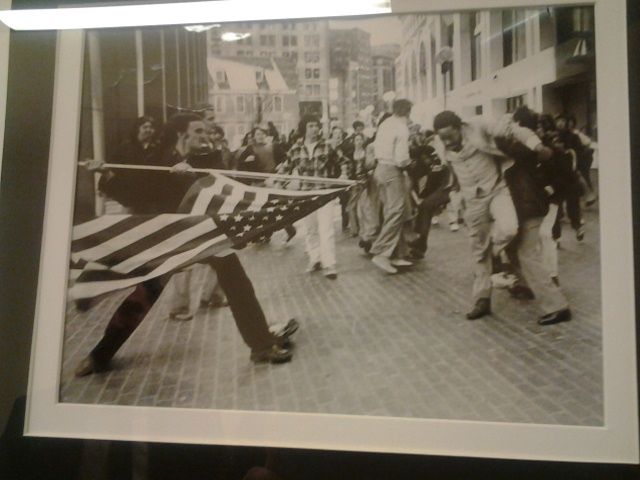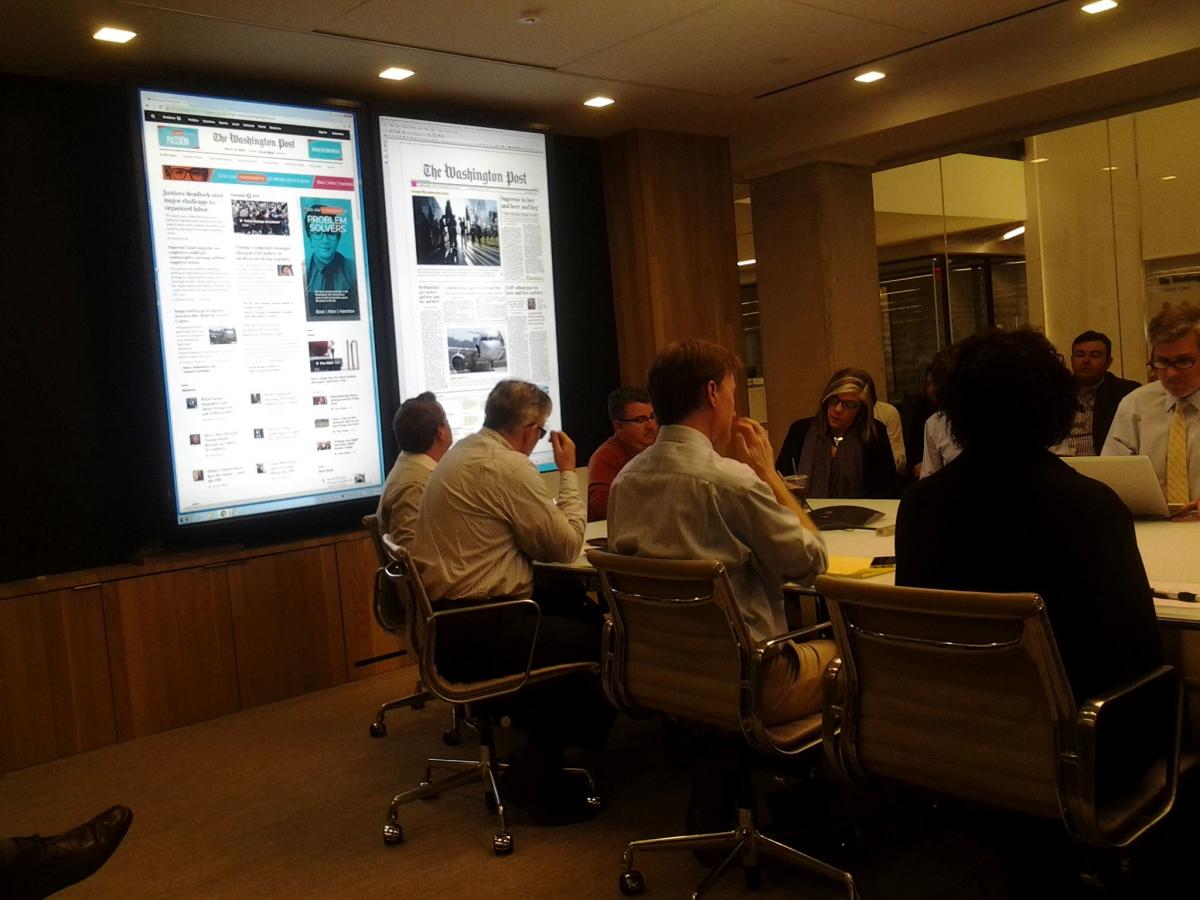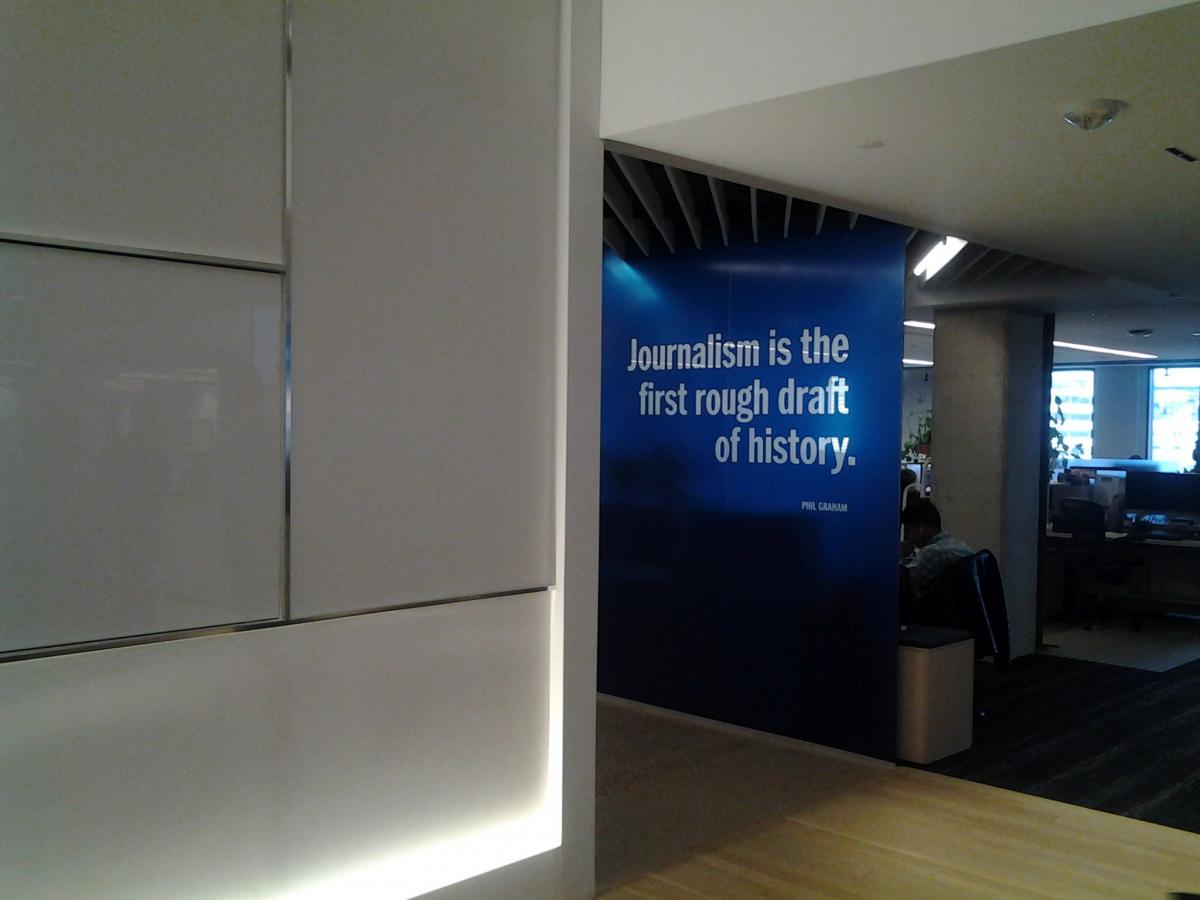Marshall Memorial Fellowship: Time for Decent and Responsible Journalism
“Holding people accountable is an expression of value“ – Marshall Ganz, Harvard University
Photo: Daniel X. O'Neil
“Holding people accountable is an expression of value“ – Marshall Ganz, Harvard University

An anti-busing protester wields a pole bearing the U.S. flag as a weapon against Ted Landsmark in a 1976 Boston Herald photo that won a Pulitzer Prize.
Imagine your life without media. Take a pause. Now, try again.
It's difficult, if not impossible. Even if you successfully resist being part of a virtual community, then you must watch TV or read newspapers. Media keeps us informed, educates us, offers distinct perspectives but also informs our own opinions. It ultimately influences our decisions, our views and behaviour. What we read matters. What we hear and see matters too. For some getting a story is a story in itself, and for the others this is just the beginning of a journey.
It is 2016 and an important year for America. A particularly lengthy campaign for the presidential elections that will be finalized in November 2016, which consumes media space at the moment. Discussion spills over to Europe too, but only one name prevails-:TRUMP. According to the New York Times , media in the U.S., have given around 2 billion dollars of free advertisement to Donald Trump. Trump´s wealth, Trump’s hair, Trump’s steaks, along with his ever changing views on foreign and domestic policy, seem to be selling well, even across the Atlantic. And now the process seems to be unstoppable. Touring the U.S. for 24 days as a Marshall Memorial Fellow, from Washington DC to Alaska, virtually every person I have met in the States felt an urge to speak about Trump, one way or the other.
What has the media done to all of us that we have become obsessed with Trump?
Part of the success of Trump in the campaign is our own obsession with a man. But how we got there in the first place? The answer is very short: media.
Having being immersed in the diversity of America, having met some of the most incredible individuals and attended thought provoking meetings, I cannot shake the feeling that there is so much more in America right now than Trump, which we don’t hear about. Climate change in Arctic, Censored Native American history, raging racism, homelessness, abandoned cities, undocumented people, pick any. There are stories that are genuinely of a transatlantic importance, stories that can win our hearts and minds and/or stories that call for the action. Only, many of those remain underreported—some of which I would like to share here.
One key underreported area concerns news from Alaska and the Artic. In words of Alice Rogoff, who served for over 10 years as the chief national officer for US News and World Report, and who reinvented herself again in Alaska at age 62, launching the Alaska Dispatch News: “If we don’t know the truth how can we do anything about it? If we work well, other things work well too”. Artic news should concern us all. Ever changing climate effects this place so profoundly that what once was a remote ice covered space is now a “new Mediterranean.” Sea-ice extent, which grows during the winter and shrinks in the summer, is a much-watched indicator of Arctic climate. In March this year, the ice reached its maximum extent for the year – the lowest maximum in the satellite record that dates to 1979. Warming water temperatures are believed to have decimated the stock of fish eaten by common murres in Alaska. Lack of food has led to about 8,000 dead murres being found in just one location – part of the most extreme die-off in 40 years. And this is just what we observe.

Washington Post editorial meeting, Washington DC, April 2016. Photo credit Alida Vracic
Back in the capital, the brand new newsroom of the Washington Post bursts with energy. Flashing screens, busy journalists, the vibration of the incoming news, makes everyone who enters the Post want to become a part of it. Tracy Grant, deputy manging editor, embodies all that enthusiasm. The Washington Post delivers what no government agency does at the moment. Following on events in 2012, after Trayvon Martin’s murderer, after George Zimmerman was acquitted for his crime, the Black Lives Matter movement became nationally recognized for its street demonstrations following the 2014 deaths of two more African Americans, resulting in protests in Ferguson. Washington Post newsroom efforts to compile national databases of people killed by police related to the Black Lives movement is a project to be followed. They track police shootings and whether the person killed showed signs of mental illness. To date, the Washington Post counted 190 black deaths by police gunfire, or one every 34.1 hours.

Washington post newsroom, Washington DC, April 2016, Photo credit, Alida Vracic
The last stop on my journey was Miami, FL. Most only know Miami for its beautiful beaches and its sparkling exteriors, but for thousands in Miami Beach, the streets are the only home they know. Homelessness is so widespread in Florida that during the past seven years, homelessness has soared. Even among public school students ages 5 to 17 and it jumped 84 percent. In 2011, 56,680 students were reported homeless. As I have heard repeatedly, one— just one—serious medical situation in the family separates many people from ending up on the streets. Calling for government action, journalists on the west coast in San Francisco will have one day of coordinated coverage on the homelessness crisis in the city. Thirty news organizations have confirmed their participation. The premise of the effort is to create a “wave” of coverage. Nobody will be able to log onto Facebook, turn on the radio, watch TV, read a newspaper, log onto Twitter without seeing a story about the causes and solutions to homelessness.
Compared to the Trump coverage, this is an inspiring example of the power of the media put to good use. Media, just like politicians and leaders of countries, are able to exert influence on the people and have an enormous responsibility towards their fellow citizens. When willing and capable, media can quite literally shape our worldview— a worldview free of unnecessary sensationalism and energized by good journalism.
Alida Vradic, Executive Director of Populari-Centre for Socio-Economic Studies, is a Spring 2016 European Marshall Memorial Fellow.